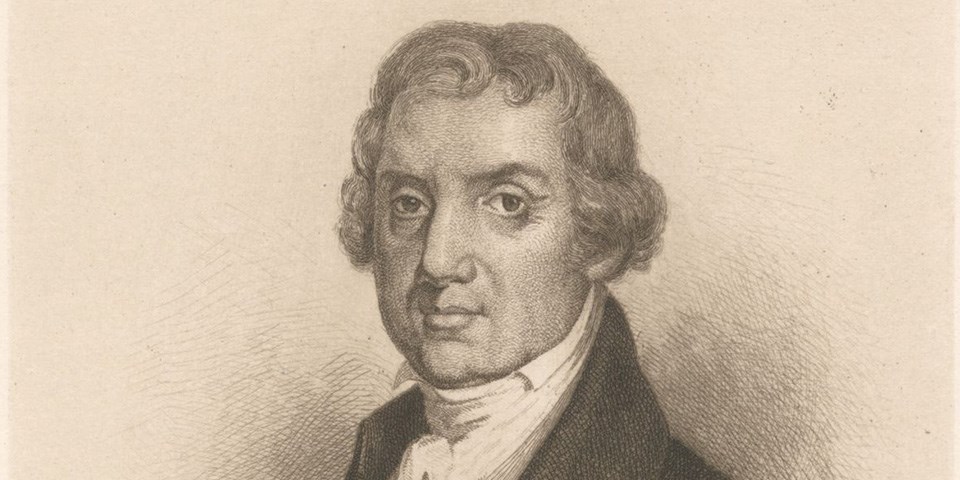Part of a series of articles titled The Constitutional Convention: A Day by Day Account for July 1 to 15, 1787.
Article
July 6, 1787: Haggling over a Compromise

The New York Public Library Digital Collections, https://digitalcollections.nypl.org/items/510d47da-2b7e-a3d9-e040-e00a18064a99
"So many forms of government I believe never were contrived before they are floating about here in all directions like Spectators worlds some half-finished, some a quarter, the greatest part but just begun—mere political tadpoles."
--Abraham Baldwin (GA) to his brother-in-law Joel Barlow
Debate resumed on a proposal for states to get one representative in Congress for every 40,000 inhabitants. Would this formula be just a starting point or a fixed rule for future generations? Gouverneur Morris (PA) moved to form a committee to spell out the number of representatives for each state, leaving future Congresses to make adjustments. Wilson (PA) seconded.
Butler (SC) argued that property, not population, should be the basis for meting out representation.
Pinckney (SC) disagreed with Butler, but then further elaborated that Black Americans, including those enslaved, should be counted when determining how many representatives a state received—even though enslaved Black Americans were legally considered property and not citizens.
G. Morris's proposal to have a committee determine how representation would be apportioned passed. Opposition to the proposal came from three small states: New York, New Jersey, and Delaware; with a fourth, Maryland, divided. The members elected G. Morris, Gorham (MA), Rutledge (SC), Randolph (VA), and King (MA) to the committee.
The compromise proposed for an equal vote in the second legislative branch was taken up. Franklin (PA) observed that this question could not properly be put separately, since it was part of a package compromise. The Convention voted to postpone this issue.
The Convention went back to the proposal for originating money bills (bills concerning government finances) in the first house, where large states would have more power. This had been a concession to the large states, who had wanted both houses to have proportional representation. Multiple delegates from large states (G. Morris, Williamson (NC), Gerry (MA), and Pinckney) argued that this compromise was meaningless, or worse. Only Franklin (PA) spoke in favor of the proposal, but it still passed, 5 yes, 3 no, and 3 divided.
The question was raised as to whether a vote in which there were only 5 yeses out of 11 votes was an affirmative. By a vote of 9 yes, New York and Virginia no, the Convention said it was.
- Delegates continued to argue over, and fail to find, an agreeable way to apportion representation in the house of Congress where large states would have more power.
- By a narrow margin, the Convention agreed that money bills needed to be passed by the first, proportionate house of Congress before being considered by the second house, where each state would have an equal vote.
- Washington's (VA) diary entry read: "Sat for Mr. Peale [Charles Willson Peale, who was preparing a mezzotint of the General for sale to the public] in the morning. Attended Convention. Dined at the City Tavern with some members of convention and spent the evening at my lodgings."
- Johnson (CT) wrote that Washington was the dinner host, something which Washington would not have mentioned, even in his diary.
- James Gordon wrote from Tobago to John Langdon (NH) in Portsmouth enclosing an account of the firm's disbursements for Langdon's ship Danot. Langon's Portsmouth neighbor John Wentworth wrote him to ask that he check on the progress of the "suite brought for the Prize Lussanna by Mr. Doane at Philada." since Langdon was going there. New Hampshire was the last state to send delegates to the Convention, who would arrive on July 23.
- The day was clear and very warm with a breeze from the northeast.
Last updated: September 21, 2023
